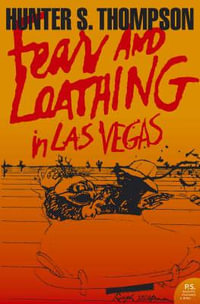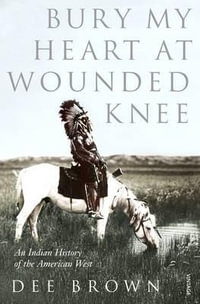An innovative recasting of US legal and economic history through the power of clothing for those who lacked power and status in American society. What can dresses, bedlinens, waistcoats, pantaloons, shoes, and kerchiefs tell us about the legal status of the least powerful members of American society? In the hands of eminent historian Laura F. Edwards, these textiles tell a revealing story of ordinary people and how they made use of their material goods' economic and legal value in the period between the Revolution and the Civil War.
Only the Clothes on Her Back uncovers practices, commonly known then, but now long forgotten, which made textiles--clothing, cloth, bedding, and accessories, such as shoes and hats--a unique form of property that people without rights could own and exchange. The value of textiles depended on law, and it was law that turned these goods into a secure form of property for marginalized people, who not only used these textiles as currency, credit, and capital, but also as entree into the new republic's economy and governing institutions. Edwards grounds the laws relating to textiles in engaging stories from the lives of everyday Americans. Wives wove linen and kept the proceeds, enslaved people traded coats and shoes, and poor people invested in fabrics, which they carefully preserved in trunks. Edwards shows that these stories are about far more than cloth and clothing; they reshape our understanding of law and the economy in America.
Based on painstaking archival research from fifteen states, Only the Clothes on Her Back reconstructs this hidden history of power, tracing it from the governing order of the early republic in which textiles' legal principles flourished to the textiles' legal downfall in the mid-nineteenth century when they were crowded out by the rising power of rights.
Industry Reviews
"Laura Edwards has produced a masterpiece that forever changes how we see the nineteenth century's ubiquitous textiles and the women who worked, stole, hoarded and wore them. Only a scholar like Edwards, with insights that go beyond conventional notions of property and ownership, could recover the astonishing stories about how those without rights still exercised legal dominion over fabric and their economic lives. Only the Clothes on Her Back smartly
debunks simple cultural truisms about women and their adornments, revealing how ordinary Americans, even those marginalized in public law, connected to global markets and remade those forces by their own terms
in the local courthouses of the early Republic." -- Martha S. Jones, author of Birthright Citizens: A History of Race and Rights in Antebellum America
"With elegance, creativity, and a fitting touch of wit, Laura Edwards unfolds the world of early American textiles in this brilliantly original study of gender, race, material exchange, and the law. The seemingly small arena of gowns, sheets, and hosiery as revealed through her careful research proves massively impactful to those who were marginalized by society as well as to merchants and manufacturers. While enslaved people, free Blacks, and white women could
not claim personal rights, they could and did own all manner of fabrics, which they saved, traded, and defended in a complex legal culture that defies our modern expectations but would not last. The
Clothes on Her Back transforms our understanding not only of lace, looms, and law, but also of nineteenth-century American lives." -- Tiya Miles, author of All That She Carried: The Journey of Ashley's Sack, a Black Family Keepsake
"In Only the Clothes on Her Back, Laura Edwards combines daunting archival research with a brilliant synthesis of generations of scholarship to put women, both Black and white, at the heart of American legal and economic history between the Revolution and the Civil War. Laced with wit, and knitting race, class, and gender into a seamless fabric, Edwards poignantly and powerfully brings home what was gained and lost when America became 'a nation of
rights.'" -- Dylan C. Penningroth, University of California, Berkeley
"In this revelatory book, Laura Edwards explains the extraordinary significance that textiles once held in the American economy and legal system. A book of scrupulous research and a profoundly revisionist account of the workings of property, gender and the law in America between the Revolution and the 1860s." -- Deborah Cohen, Northwestern University
"This is a book about textiles and the people who owned them. It is also a book about rights and the people who lacked them. Sound intriguing? It is. In her wide-ranging and intricately argued book, Only the Clothes on Her Back, Laura F. Edwards explains how ordinary people participated in the American economy and the legal system before the Civil War despite the fact that most of them lacked formal rights to do so. What made it possible? Textiles.
Edwards has written an engaging if complex book that reminds us that there is more to legal history than formal rights."-Marjoleine Kars, ashington Post
"In Only the Clothes on Her Back, Edwards has addressed an important but underexplored aspect of nineteenth-century economic life. She reveals the ways in which textiles shaped, and were shaped by, people at the margins of economic and legal culture in America. She shows how clothing can be a useful and generative lens through which to understand law and power in the nineteenth century. Edwards's triumph is that she has shown through her deft and
incisive analysis that textiles influenced much more than the clothes that people wore. Instead, textiles shaped the very nature of law and economy during the nineteenth century." -- Justene Hill Edwards, H-Diplo
"The study is truly a tour de force showcasing deft analysis, deep creativity, and penetrating research. Readers will find this book deeply rewarding and incredibly enlightening." -- James J. Broomall, The Journal of the Civil War Era
"Laura F. Edwards... has written a book... [that] decidedly recasts our understanding of the material struggles of some of the 'dependent classes' (married women, slaves, servants) to which most Americans belonged in those decades... Making use of diligent, painstaking research in often untouched, sometimes crumbling local court records, Edwards persuasively demonstrates that in the unsystematized, highly decentralized American legal system before the Civil
War, people without the right to property nonetheless owned it and had the opportunity to secure it in court... In its research, its interpretation, and its implications, Only the Clothes on Her Back is
unspeakably significant." -- Robert Westbrook, Journal of American History
"Edwards's new study... reveal[s] the national scope of the ephemeral post-Revolutionary localized political culture that offered protection to the propertyless. But it does a great deal more: it illuminates a hidden history of female economic power grounded in the ownership of textiles... Edwards makes it clear that the legal principles that governed the textile market were highly regulated, widely understood, and enforced by courts throughout the republic
without open acknowledgment." -- Amy S. Greenberg, American Historical Review
"This book is helpful in drawing our attention to the perhaps usually invisible legal principles behind the ownership of these objects." -- Rebecca Jumper Matheson, Nineteenth Century
























